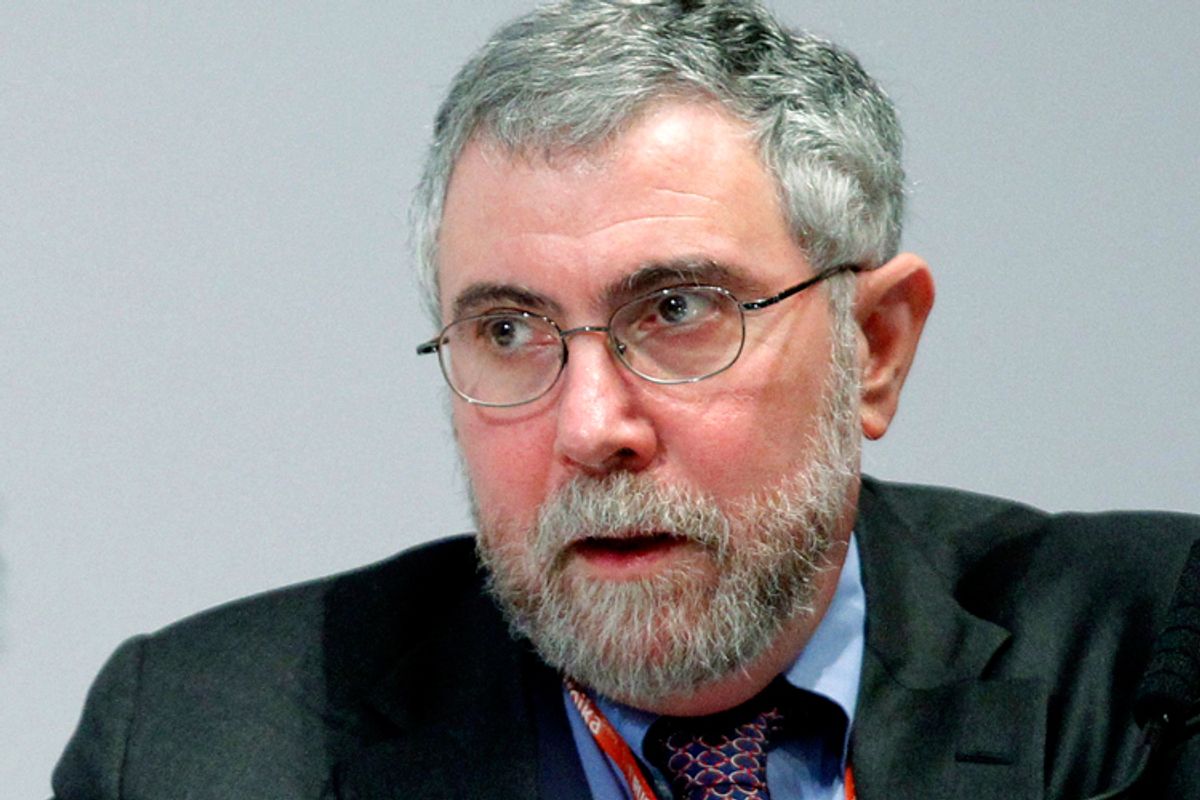Paul Krugman's latest column for the New York Times is a defense of prioritizing inequality as the top issue in American politics today.
To begin his column, Krugman writes that while inequality is nothing new — it's been a topic of conversation in pop culture ever since Oliver Stone's 1987 film, "Wall Street," he notes — the willingness to address it being shown by some major politicians (including the president) is. In fact, according to Krugman, concern over inequality has become so widespread that it's produced "a backlash from pundits arguing that inequality isn’t that big a deal."
But the truth, according to Krugman, is that inequality is a big deal — both economically and politically. Regarding inequality's economic impact, Krugman writes, "inequality is rising so fast that over the past six years it has been as big a drag on ordinary American incomes as poor economic performance, even though those years include the worst economic slump since the 1930s." He also argues that inequality's influence is partially to blame for the weak post-recession economy, because having so much wealth tied up with so few people reduces consumer demand in the economy as a whole.
The heart of Krugman's argument for inequality's primacy as a public policy concern, however, is political, not economic. Noting that the concerns of the very wealthy tend to outweigh those of the remaining 99 percent, Krugman argues that inequality results in a political system that's almost entirely hijacked by the extremely rich. "Surveys of the very wealthy have, however, shown that [the 1 percent] — unlike the general public — consider budget deficits a crucial issue and favor big cuts in safety-net programs," Krugman writes. "And sure enough, those elite priorities took over our policy discourse."
More from Krugman at the New York Times:
Which brings me to my final point. Underlying some of the backlash against inequality talk, I believe, is the desire of some pundits to depoliticize our economic discourse, to make it technocratic and nonpartisan. But that’s a pipe dream. Even on what may look like purely technocratic issues, class and inequality end up shaping — and distorting — the debate.
So the president was right. Inequality is, indeed, the defining challenge of our time. Will we do anything to meet that challenge?

Shares